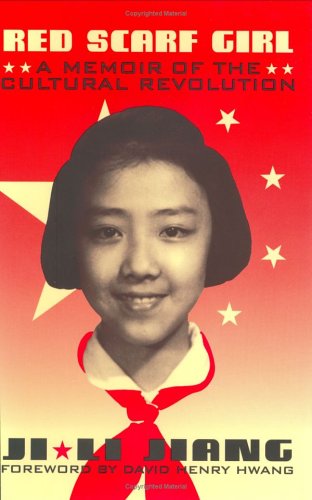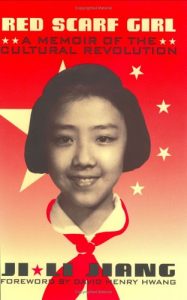As an International Relations assembly for seniors, Ji-Li Jiang, a survivor of the Chinese Cultural Revolution, recently visited Walpole High School as a chance to tell her story about her own experience during the revolution. The assembly, funded by the John-Hern Foundation, was organized by Mr. Christopher Jean, history and International Relations teacher at Walpole High.
First and foremost, Ji-Li introduced herself, explaining that she is a former teacher, and she was excited to be able to talk to current students about her experience. She began the story of her life by explaining her childhood growing up Shanghai, China, which she compared to our present day New York City. Twenty seven years ago, Ji-Li lived in her family’s apartment, which was part of a poorer section of town. Her family’s 300 square foot, one room apartment came with no refrigerator, television, heat, air conditioning, or any of the appliances that most of us take for granted in the United States. If she or anyone in her family were to need to use a telephone, they would have to go down to the bottom of the apartment complex and use the telephone booth, shared with thousands of other people that inhabited the complex, operated by a single lady who took all messages and calls.
The audience, by this point, was attentive and intrigued by Ji-Li’s story. In 1966 is when “Heaven and Hell switched places”, said Ji-Li. China took a turn for the worse, as the Cultural Revolution was quickly changing the views of the Chinese government by the public. “New China,” as Ji-Li said, “was what people were writing everywhere.” People would smash store signs in streets if they had any indication of the old ways of the culture of the old China. “We became animals,” Ji-Li said. “We weren’t humans.” Revolutionaries, who were the soldiers leading the revolution under Mao Zedong, began to invade the streets, ripping modern clothes off of the backs of innocent people. Pants were only allowed to be a certain length, and hair could only be worn a certain way. Traffic lights were switched in the indication of when to go and when to stop. Red, which was the color of the communists, meant go, which to the communists meant moving forward and leaving the old ways of China behind. Ji-Li and her family, along with the rest of the population of China, were under a drastic changing government that they had no control over.
Ji-Li has written a book on her story of surviving the Cultural Revolution. In her book, “Red Scarf Girl,” she tells her experience of when revolutionaries walked into her classroom during a school day and told her that she was being forced to denounce her father. Because her father was a land owner, the government frowned upon him. At only fourteen years old, Ji-Li had to watch her father be beaten in front of a crowd. She calls these assemblies that were organized and mandatory by the government struggle meetings. Ji-Li became teary-eyed at this time during the assembly. It was obvious that it was difficult for her to look back on these difficult memories of her childhood. As well as watching her father be chastised, Ji-Li had to see her teachers at these struggle meetings. She witnessed her teachers be beaten and have ink poured onto their faces. After the assembly was over, “Red Scarf Girl” was on sale, and students had the opportunity for Ji-Li to sign their copy.
After Ji-Li finished her speech, students had the chance to ask her questions. When one student asked about the how she dealt with the big change in her life, moving to America, she responded by saying, “maybe you should read my book and you would know.” Thankfully, even after hearing the brutal stories about suicides as a way to avoid torture, the audience broke into laughter.
Mr. Jean, International Relations teacher at the high school, thought that the assembly had a positive effect on his students. He explained, “It’s one thing to learn about it, but its another to learn from an individual who lived through it. It’s much more real.” Ji-Li’s story surely touched almost everyone in the audience. She explained two simple reasons for coming to our school to tell her story. One, she didn’t want people to forget the tragedy that took place 27 years ago. Two is because she “wants us to appreciate our life everyday.” At the last moment of her speech, Ji-Li Jiang gave the International Relations students a piece of advice. She said, “We have to make tough decisions in our lives…use your mind, follow your heart, make some good decisions, then I will be very gratified for writing this book.”









